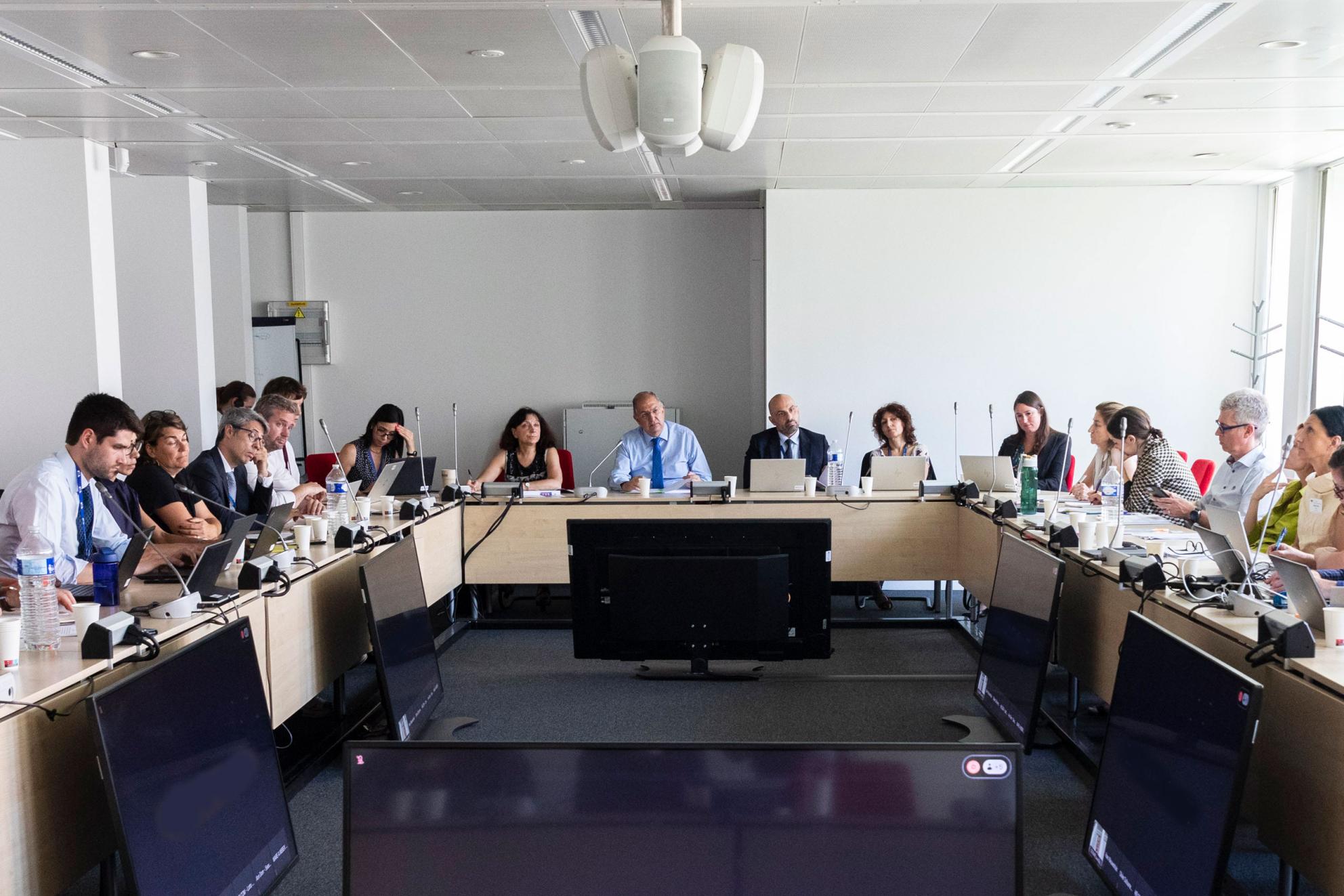The implementation dialogue on maritime spatial planning (MSP) took place on 1 July in Brussels. Hosted by Costas Kadis, Commissioner for Fisheries and Oceans, the event brought together a broad range of stakeholders—business and industry representatives, civil society organisations, and public authorities.
During the event, attendees evaluated what aspects of the current MSP Directive (MSPD) are working well and identified areas for improvement, considering the fast changes occurring in the marine environment.
There was strong support for the MSPD as a crucial framework that offers consistent and flexible guidelines for maritime development. However, participants highlighted the need for better planning with nature and food production in mind and stronger protection for the environment.
Main discussion points
- Policy alignment: Ensuring MSP clearly aligns with wider EU policies on climate, biodiversity, energy, and food security.
- Engaging stakeholders: Stressing the importance of involving all relevant parties, especially fisheries and local communities, from the start.
- Simplifying processes: Aiming to reduce red tape and delays in licensing, while improving coordination, especially in marine conservation.
- Collaboration across borders and sectors: Increasing data sharing and harmonising approaches across sea-basins and regions.
Participants also called for better assessment of the impact of intensified activities at sea, stronger legal protection for sensitive areas, and support for shared use of maritime space.
They discussed ways to improve the management of MSP and to solve administrative challenges, while emphasising the need to link MSP clearly with land use, cultural heritage, and defence activities. There was also a call for flexibility to meet regional and local needs.
Commissioner Kadis welcomed these insights, noting their importance for the upcoming Ocean Act, a central part of the European Ocean Pact. The Ocean Act will build on a revised MSP Directive. It will strengthen and modernise maritime spatial planning through improved cross-sectoral coordination at national level and a more coordinated approach to managing seas basins, ensuring a more coordinated and sustainable use of marine resources.


